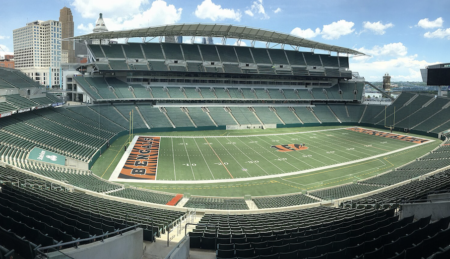The Massachusetts Senate will dig into a massive economic development package Thursday after top Democrats on Monday morning released their own vision for how the state should pursue job and economic growth opportunities going forward.
The Senate’s bill authorizes $2.444 billion in borrowing, giving the executive branch flexibility to put as much of that amount into use as it determines is necessary and wise, and $350 million in tax credits mostly to be deployed in the climate technology sector.
It also includes a number of policy provisions, including clearing the way for a professional soccer stadium to be built on a blighted land parcel in Everett. The House and Senate have both supported the idea over the past few years, but have not been able to get on the same page at the same time.
In late June, the House voted 155-2 to pass its own economic development bill that largely mirrors the version Gov. Maura Healey proposed. That bill features $3.4 billion in long-term bond authorizations and an additional $700 million in tax credits, including investments to reauthorize the life sciences initiative for another decade and make a parallel investment in “climatetech.”
Asked why the Senate chose to authorize less borrowing, specifically for the life sciences industry, the bill’s lead architect said senators were comfortable with the smaller authorization.
“We are very bullish on life science and we continue to be very supportive,” said Economic Development Committee Co-chair Sen. Barry Finegold. “We think that by putting the numbers that we put forward, it will make a huge impact. Obviously, we have a version, the House has a version and the governor has a version. I think we’ll find a number that everyone can agree on. We’re very comfortable with the number we put forward.”
The House proposed $500 million for the Mass Life Sciences Center to provide grants and loans to grow businesses in Massachusetts, while Senate Democrats suggested only $225 million to support the reauthorization of the Life Sciences Initiative.
Though the Senate’s proposal authorizes less borrowing, it also provides the life sciences center more flexibility by adding health equity, biosecurity, digital health and artificial intelligence to its mission. The bill further expands program eligibility to the so-called alternative protein industry, and redefines “life sciences” to include preventative medicine, biosecurity, life sciences AI, and medical technology, according to Finegold’s office.
Bond authorizations in the Senate bill include $400 million for MassWorks public infrastructure grants, $150 million for municipal library projects, $100 million for an Applied AI hub, $100 million for the Rural Development Program, $100 million for the Seaport Economic Council grant program, $99 million for advanced manufacturing initiatives — all mirroring the House bill.





